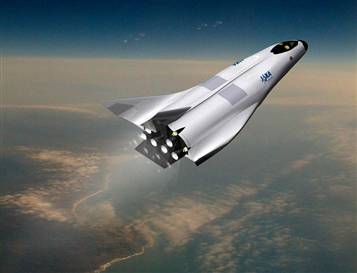NASA Is 'Embarrassing,' Neil Armstrong Tells Senate
I have to agree with Armstrong. The Space Program, and all of its expense was the one program that brought American's together. It in many ways was a symbol of the Freedom that stands for America. This has ended an era, and one wonders if our leadership in space will ever again be seen.
Hat Tip:Before It's News
The end of the Shuttle programme has left the US in danger of squandering decades of space achievement, former astronauts Neil Armstrong and Eugene Cernan have told the US Senate Committee on Science, Space, and Technology.
The 81-year old space grandee Armstrong criticised the fact that getting to the International Space Station (ISS) meant hitching a lift on decades-old technology, Russia’s Soyuz, in order to make the journey,
"For a country that has invested so much for so long to achieve a leadership position in space exploration and exploitation, this condition is viewed by many as lamentably embarrassing and unacceptable," Armstrong said.
"A lead, however earnestly and expensively won, once lost, is nearly impossible to regain." He warned. Armstrong’s sentiments as the first human being to walk on the moon in 1969 were backed up a similar contribution from Eugene Cernan, 77, the last man to have stood on its surface in 1972.
"Today, we are on a path of decay. We are seeing the book close on five decades of accomplishment as the leader in human space exploration," said Cernan.
"You want a launch vehicle today that will service the ISS? We've got it sitting down there,” Cernan added, referring to the Space Shuttle. “So before we put it in a museum, let's make use of it. It's in the prime of its life, how could we just put it away?"
The Space Shuttle was cancelled in 2004 by President George Bush a move that never looked likely to be reversed by his successor Barack Obama given the state of US finances. Part of the problem has been agreeing on the goal of space exploration, with opinions divided on a return to the moon, a more ambitious journey to Mars and deep-space scientific exploration using probes.
Hat Tip:Before It's News
The end of the Shuttle programme has left the US in danger of squandering decades of space achievement, former astronauts Neil Armstrong and Eugene Cernan have told the US Senate Committee on Science, Space, and Technology.
The 81-year old space grandee Armstrong criticised the fact that getting to the International Space Station (ISS) meant hitching a lift on decades-old technology, Russia’s Soyuz, in order to make the journey,
"For a country that has invested so much for so long to achieve a leadership position in space exploration and exploitation, this condition is viewed by many as lamentably embarrassing and unacceptable," Armstrong said.
"A lead, however earnestly and expensively won, once lost, is nearly impossible to regain." He warned. Armstrong’s sentiments as the first human being to walk on the moon in 1969 were backed up a similar contribution from Eugene Cernan, 77, the last man to have stood on its surface in 1972.
"Today, we are on a path of decay. We are seeing the book close on five decades of accomplishment as the leader in human space exploration," said Cernan.
"You want a launch vehicle today that will service the ISS? We've got it sitting down there,” Cernan added, referring to the Space Shuttle. “So before we put it in a museum, let's make use of it. It's in the prime of its life, how could we just put it away?"
The Space Shuttle was cancelled in 2004 by President George Bush a move that never looked likely to be reversed by his successor Barack Obama given the state of US finances. Part of the problem has been agreeing on the goal of space exploration, with opinions divided on a return to the moon, a more ambitious journey to Mars and deep-space scientific exploration using probes.

